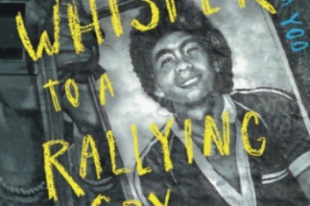Tragic legacy still matters


With a spike in hate crimes against Asians in the US, Paula Yoo's new book discusses how one fatal incident in 1980s Detroit sparked a nationwide movement, May Zhou reports in Houston, Texas.
In 1982, Japanese auto companies were on the rise and many American autoworkers, incited by politicians' rhetoric, blamed Japan for losing their jobs. Anti-Japanese sentiment was simmering.
A bar fight in the auto city of Detroit turned fatal, leaving Chinese American Vincent Chin, who was enjoying his bachelor's party a few days before his wedding, beaten to death by two white men, autoworker Ronald Ebens and his stepson, Michael Nitz.
As Chin's friend Jimmy Choi held him in his arms, his last words were, "It's not fair."
A waitress later testified in court that Ebens was shouting: "It's because of you … that we're out of work."
Fast-forward to 2020, when the COVID-19 pandemic broke out, many Americans blamed the origin of the virus on China. Again, incited by politicians' rhetoric, crimes against Asian Americans have climbed sharply in the last two years.
"It's not just racism, it's xenophobia. The problem in this country is that people cannot separate our country of origin and cultural heritage from our American citizenship," says Paula Yoo, an accomplished writer and musician.
Yoo, whose credits include screenplays for popular TV series The West Wing and Supergirl, shared her thoughts on racism by discussing her book-From a Whisper to a Rallying Cry: The Killing of Vincent Chin and the Trial that Galvanized the Asian American Movement-published in 2021, at the two-day conference Moving Forward: Challenging the Racism, held at the Holocaust Museum Houston from Feb 26-27.
The conference complemented the ongoing museum exhibition Speaking Up: Confronting Hate Speech, says Nancy Li, event co-chair and museum board secretary.
"It takes a look at the history of Asian Americans and how to move forward through civic engagement, legislation, legal action and such, to foster equality and justice for all," says Li.
Yoo's new book, which has won numerous awards, examines the killing, the trial and the verdicts that followed Chin's death. Ebens and Nitz pleaded guilty to manslaughter, received only a $3,000 fine and three years' probation.
"Let the punishment fit the criminal, not the crime," presiding Judge Charles Kaufman said at the time.
Such a lenient sentence sparked outrage and led to the first federal civil-rights trial involving a crime against an Asian American. It lost due to a technicality, but it galvanized what came to be known as the Asian American movement, says Yoo.
The movement began in Detroit but spread nationwide. The Chinese American community joined hands with the Japanese American community and other Asian communities and the term "Asian American" became mainstream, says Yoo. The movement was also joined by the all-inclusive American Citizens for Justice.





































